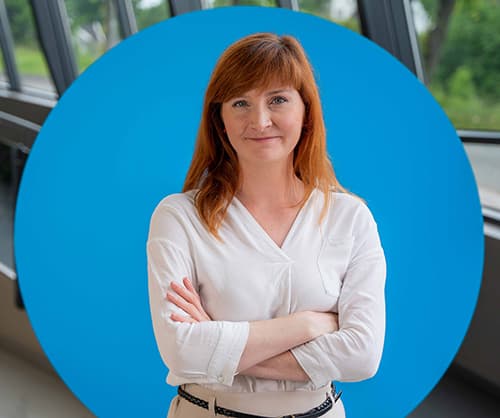New survey finds over 80% of people in Poland eager for deposit return scheme
81% of people in Poland believe that a deposit return system (DRS) is the best solution to efficiently collect used drink containers for recycling, according to a recent survey of residents across every province in Poland. When asked about the optimal value for the container deposit, respondents indicated that both 50 groszy and 1 zloty would motivate them to return a single package to the store.
A DRS is expected to be launched in Poland early next year. It will involve consumers paying a small deposit at the time of purchasing a beverage in a plastic bottle, can, or reusable glass bottle, which they get back when returning the empty container to a collection point for recycling. For the system to work effectively, it requires the preparation of a well-designed infrastructure, namely collection points. That's why K+Research by Insight Lab, commissioned by TOMRA Collection, conducted the survey to gather the needs and expectations of consumers in Poland around the preferred forms of packaging returns in the country. The research was continued in February this year.
The vast majority of participants in the survey, 81%, support the introduction of a DRS in Poland, viewing it as the best solution for the effective collection of beverage packaging. The results are consistent regardless of respondents' age, gender, or place of residence.
“This survey shows that the DRS is a tool that is well received by society as a whole, from the oldest to the youngest generations. People in Poland are waiting for the deposit return system and are ready to make changes in their daily habits.

Recycling once a week and in stores where we do our normal shopping
Weekly shopping at discount grocery stores is a habit for people in Poland, and it is with this regularity that they are likely to return empty drink containers under the deposit return system. 42% of survey participants said they plan to return drink packaging to stores at least once a week. A slightly smaller group of respondents, 31%, would prefer to return them more often, several times a week.
When asked about a specific type of store where they would return their containers, as many as 76% preferred medium-sized stores, namely discounters. These are the stores people in Poland most often go to for their weekly shopping. Discounters were followed in preference by hypermarkets, supermarkets, or small local stores (33%, 32%, and 31%, respectively).

The results of this survey speak volumes about the needs of consumers in Poland, who will be key participants in the deposit return system. This is valuable knowledge for stores preparing collection points and key elements in designing an effective deposit return system. Among other things, the amount of recyclable beverage container returns depends on the deposit system’s design, which must be convenient and motivating for consumers.
Anticipating efficiency in reverse vending machines
The choice of a store where people in Poland are more likely to return empty beverage containers will be influenced by the possibility of convenient and hassle-free returns. In the case of stores that choose an automatic collection, i.e. through reverse vending machines (RVMs), survey participants answered that they expect above all, the efficiency of these machines (60%) and the option to return different types of packaging at the same time (50%), i.e. plastic bottles, cans, and glass bottles.
What turned out to be extremely important for the design of collection points was the location of the RVM. According to approximately 30% of respondents, it should stand in a highly visible place, near the entrance to the store. Signage and instructions for using it are equally important. The same number of respondents (about 30%) indicated the need for additional bins nearby to put drink containers not accepted by the RVM.
“People in Poland have very similar expectations to those shared by residents of other European countries in last year's survey on shopping habits under deposit return systems. Consumers want to recycle and are comfortable with the new shopping reality. Almost all respondents in that survey, 93%, return at least 90% of the deposit packaging they buy,” Konrad Robak adds.

Where do we want to learn about the deposit return scheme?
The source of information from which respondents most want to learn about the deposit return system in Poland is television, indicated by as many as 67%. Just behind it were news portals and newspapers (44%) and store flyers (43%). The latter source is strongly preferred by those over 60 years of age - 55% of them. Social media, such as Facebook and Instagram, was chosen by those under 30 (68% and 30%, respectively). Radio, on the other hand, was indicated by 34% of respondents of all ages.
“Stores are key to the effective collection of empty beverage containers. They not only provide collection and determine its placement in the store but can also offer education about the guidelines and benefits of the deposit return system. We also know from previous surveys that store leaflets can be a valuable source of information as well for many consumers in Poland,” says Konrad Robak.
The Poland report was created for retailers, but also as a collection of valuable information for the public sector, future deposit return system operators, and other stakeholders related to the deposit return system. Its findings can help better understand consumer behavior and needs in relation to the deposit return system, while using it as an opportunity to increase customer traffic and loyalty to participating stores and contribute to reducing litter in public spaces and the environment. Details of the report can be found at this link:
About TOMRA Collection:
TOMRA Collection provides reverse vending machines for Clean Loop Recycling, to transform society’s habits and keep valuable resources in a continuous loop of use and reuse. The company’s solutions collect aluminum, plastic and glass beverage containers to be continually reused and recycled back into new bottles and cans. With approximately 85,000 installations across more than 60 markets, TOMRA reverse vending machines capture over 46 billion used bottles and cans each year. This reduces reliance on raw materials, and ensures fewer containers end up in our streets, oceans and landfills. TOMRA’s reverse vending machines, digital solutions and service make recycling easy for the industry, system owners, retailers and consumers to contribute to a more sustainable planet. Visit our Reverse Vending pages on tomra.com, and follow us on Facebook, X, Instagram and LinkedIn.
TOMRA Collection is a division of TOMRA Group. Today, TOMRA is leading the resource revolution to transform how the planet’s resources are obtained, used and reused to enable a world without waste. The company’s other business divisions comprise TOMRA Food and TOMRA Recycling. The Group employs approximately 5,300 people globally and is publicly listed on the Oslo Stock Exchange.

